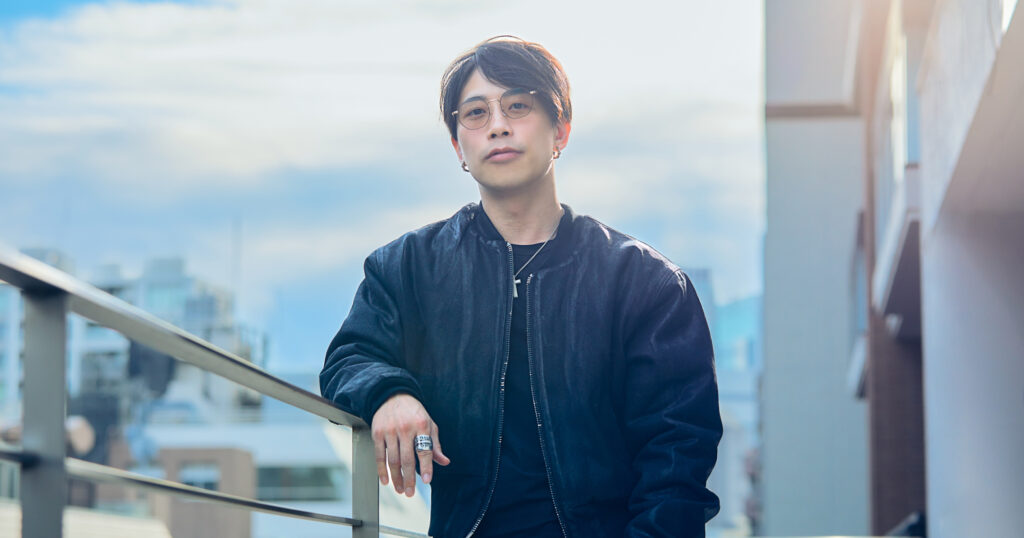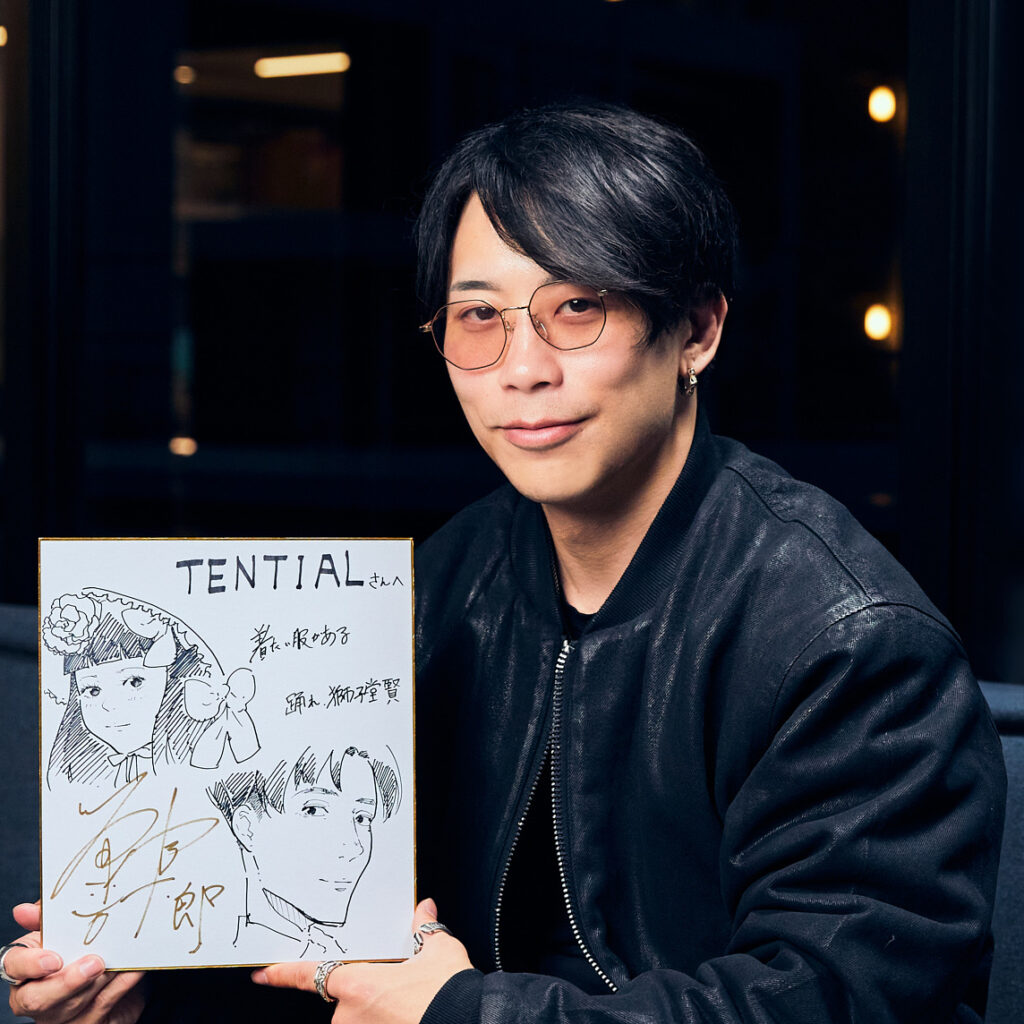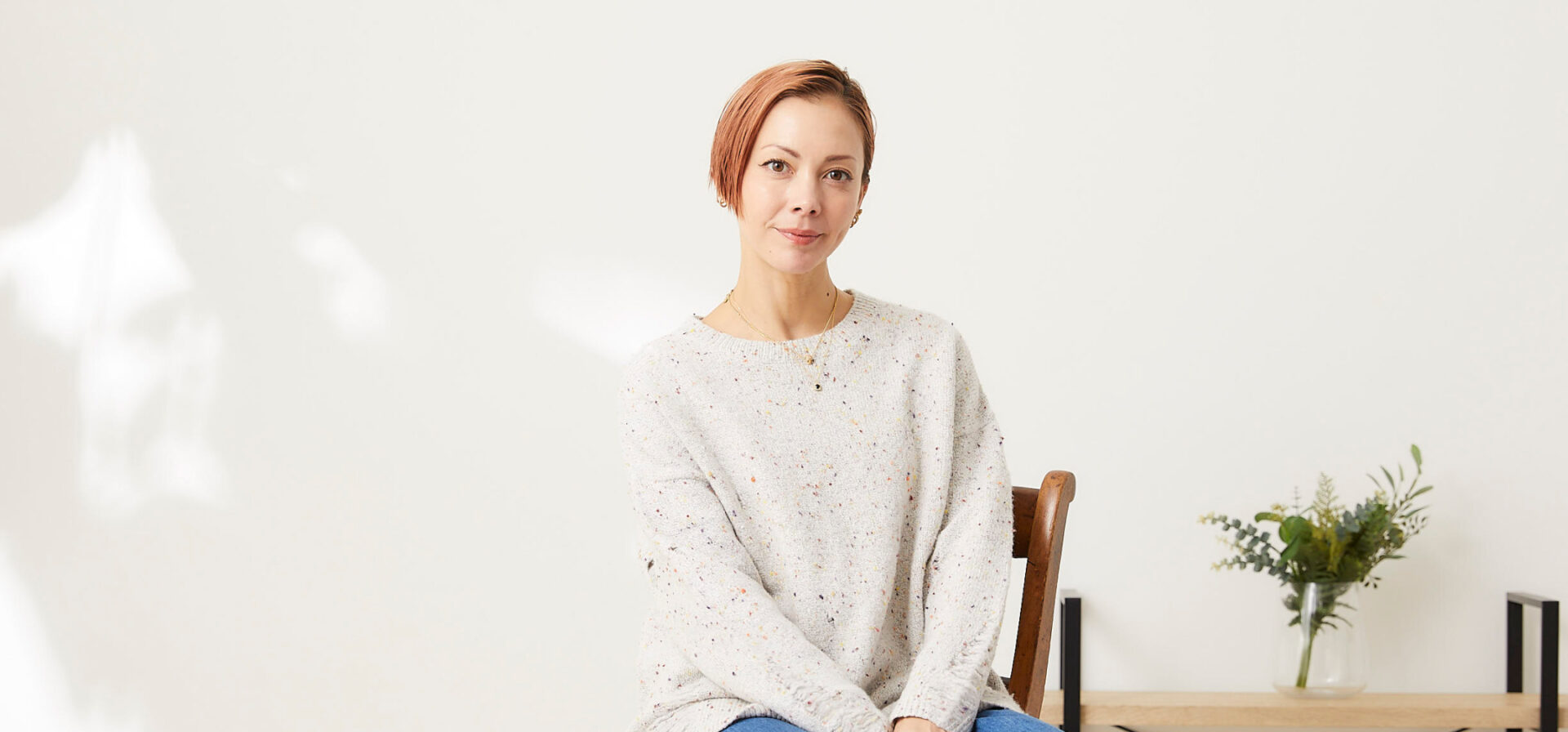[Manga Artist Netarou Tsuneki] the Secret to Enriching both Work and Personal Life by “Living Authentically”
2024.01.16
How do professionals who continue to challenge themselves in various fields such as sports, business, art, and culture approach their bodies and unleash their potential? We ask about the "conditioning" they practice in their lifestyles.
This time, we spoke with manga artist Netarou Tsuneki, whose work "The Clothes I Want to Wear," themed around "living authentically," was selected as a Jury Recommended Work at the Japan Media Arts Festival. We asked him for tips on how to enrich both work and personal life.
*Conditioning, as defined by TENTIAL, is the act of optimizing all factors related to one's physical condition to improve life performance.
Conditioning as a Manga Artist
── Mr. Tsuneki, how much do you focus on "conditioning" in your lifestyle?
First of all, you can't draw manga unless you're healthy. Basically, I'm the type who wants to work 24 hours a day. It's gotten better now, but there was a time when I decided to "only play once a month" and kept drawing manga for about five years (laughs). To keep that up, and to have fun during that once-a-month playtime, I had to maintain my health. So, for example, before sitting down at a restaurant, I always wash my hands and gargle. I don't want to take a break from work, so I pay close attention to not catching a cold.
── I heard you attend a kickboxing gym. Is that also for conditioning purposes?
Yes. After becoming a working adult, I was living an extremely unhealthy lifestyle. Sitting at home working all the time made my legs really thin. I originally did kickboxing for about two years in high school, but when I restarted after a long time, my foot skin became so thin that it peeled off because I wasn't walking much (laughs). I realized, "I'm really not moving my body."
At first, I was learning Krav Maga, a close combat technique developed in Israel. I started thinking it might be useful as a manga idea, but when would I ever use "self-defense against a gun threat"? Is there even such a situation? (laughs). Instead, I found the Muay Thai class next door, held once a week, more interesting and got hooked on it. Some days sparring goes well, and some days I lose, and when I lose, I get frustrated and go running after returning home. Gradually, I got more into it, and it's been about 7 or 8 years now. Recently, I've become interested in mixed martial arts, not just kickboxing, and thought, "I should learn wrestling too," so I got a personal trainer. My life is becoming more and more confusing. What am I aiming for? (laughs).

── Even during the time when you decided to "only play once a month," you were exercising?
I was doing it four times a week, and sometimes five times when it was a lot. It was either work, exercise, or sleep (laughs). For the first 30 minutes after waking up, I would clean, and then I would sit at my desk without moving my body at all except for bathroom and meal breaks. Then, around 6 PM, I would ride my bike to the gym, do three hours of intense sparring, and then return home to work at my desk late into the night. I kept up that lifestyle for years.
── Your body must have been surprised (laughs).
If you only draw manga all the time, it feels like you might suffer not only physically but also mentally. It's fine if the manga is going well, but that's not always the case, and when things don't go well, you get really depressed because that's all there is. Sometimes you compare yourself to others and think, "What about me..." and that's not good for mental health. So, I would go to the gym as a place to escape from the distractions in my head. "Oh, I'm not feeling great today, let's go to the gym," like that (laughs). There, I would reset my downer mood. When you're doing martial arts, you don't have time to think. When you're about to get punched, you can't think, "If only I had done that back then..." (laughs). In that way, I think forcibly "abandoning" thoughts can be a form of mental conditioning.

The martial arts I started for manga ideas have now led me to participate in matches.
── Have you noticed any positive effects on your physical and mental well-being from going to the gym?
I've been exercising for so long that it's hard to compare to when I wasn't, but physically, I never feel "tired" when I wake up in the morning. There are times when muscle pain is tough, but I've never felt that general fatigue. People who exercise often look younger, don't they? I think it's partly because their metabolism is better. Being perceived as younger than my age is probably largely due to exercising.
I think there are positive effects on mental well-being too. When you're feeling down, it seems that "moving forward" is good. Whether it's driving a car or bike, running, or walking, anything that involves moving forward has a positive impact on mental health. Indeed, just getting on the bike to go to the gym lifts my spirits.

── Do you pay attention to your diet for conditioning as well?
Honestly, I might not pay much attention to my diet (laughs). I occasionally drink with friends outside, but I never drink alone at home. I only smoke when I'm out. However, I drink about a liter of coffee a day. Also, I try to drink 3 liters of water a day. The reason is that I heard drinking water is very effective in relieving muscle pain. It actually helped with muscle pain, so I started drinking 2 liters after exercising. Besides that, I probably drink about 1 liter, so I should be consuming a total of 3 liters. By the way, during the last 1 or 2 years in Tokyo, I paid a friend who is a certified nutritionist to prepare meals for me in advance, and eating those meals made a huge difference. It was different even in terms of digestion, and at that time, meals became a daily pleasure.
Favorite Products for Conditioning
── What are some of your favorite items for conditioning, Mr. Tsuneki?
I want to do things that I can continue. For example, it's hard to take supplements in pill form every time. I get bored halfway through and feel like "I have to do it." But if it's a gummy-type nutritional supplement that feels like a snack, I can easily eat it, so I always keep about 5 or 6 types on hand. Also, I always use a low-frequency therapy device on my body after coming back from the gym. I bought a good bed too. If you think of it as a subscription that costs 20,000 to 30,000 yen a year, you can get your money's worth by using a mattress that costs tens of thousands over 20 years. I also ordered a custom pillow.

Mr. Tsuneki's favorite martial arts items. He always uses a low-frequency therapy device on his body after coming back from the gym.
── Is sleep important to you?
I became a bit depressed last year. It was like, "Could it really be me?" but around that time, I couldn't sleep well, to the point where I didn't even know what was going on. So, I splurged on a bed to get a comfortable sleep. After buying the bed, honestly, it wasn't like "it had a huge effect!" but when I stayed at a hotel or something, I often realized, "Oh, the bed at home is really comfortable." I want to continue getting as much sleep as possible.
About TENTIAL Products
── By the way, what impression do you have of TENTIAL's recovery wear BAKUNE?
Recently, I participated in a martial arts match, and during the preparation period, my body was so battered that I couldn't train without going to a chiropractor. At that time, I learned about the existence of "recovery wear" and became interested in the idea of recovering just by wearing it. As I mentioned earlier, whether I can continue without strain is a significant evaluation criterion for me. In that sense, TENTIAL seems to be designed to be easy to continue, as it is suitable for desk work and can be expected to aid conditioning just by wearing it.

── How did you find it when you actually wore it?
When I wore it, my body felt warm and cozy. It wasn't so much sweating as it was like maintaining the "warm feeling" you get after a bath... it might be similar to the feeling after a little stretching. I also wear it when I sleep. I would recommend it to other manga artists as well.
── Specifically, what are the recommended points?
Well, even if you think you need to exercise, many people find it hard to do because they're busy. I feel like there are many people around me who can draw manga and go out to play but don't exercise, so I recommend "starting with recovery wear that you just wear" to close manga artist friends. Everyone seems interested.
── Finally, could you share tips on how to enrich both work and personal life like Mr. Tsuneki?
I think it's important to "realize what you want to do" and "just try hard for the first step." Even if you don't know what you should do now, or if you feel that your private life isn't as fulfilling as your work, if you properly face yourself, you'll see "what you want to do" and "what you should do." Even if it's for a passive reason like "I prefer this over that," just try it. Then you'll eventually encounter questions like, "Why do I prefer this over that?" and if you dig into that, you'll find yourself absorbed, and as a result, both work and personal life will be fulfilling.

Netarou Tsuneki - Manga Artist
Debuted as a manga artist with "The Clothes I Want to Wear," selected as a Jury Recommended Work at the Japan Media Arts Festival, in Morning, all 5 volumes. Other works include "The Story of a Delinquent Helped by a Cat" and "Dance, Shishido Ken." Currently, a manga themed around animal protection, "I'll Save Them All," is set to be serialized on Manga One.
X (formerly Twitter): @netarouTsuneki
Instagram: @netarou.t
Contact Us
For inquiries or consultations regarding our products, services, or media, please contact us here.



![[Model Rena Takeshita] “Quitting my job was not an option.” How I balance modeling and childcare without pushing myself too hard](https://pre-corp.tential.jp/wp-content/uploads/2024/03/takeshita_fv2-1-1.jpg)

![[Professional Baseball Player Tsuyoshi Wada] Secrets to Maintaining Health for the Longest Active Record](https://pre-corp.tential.jp/wp-content/uploads/2024/02/231208_tential49607-2.jpg)

![[Former professional baseball player Hirokazu Ibata] “Sleep” creates good performance! Sleep environment creation that I was particular about since I was an active player](https://pre-corp.tential.jp/wp-content/uploads/2024/05/①_TYT7107_TOP.jpg)
![[Actress Umika Kawashima] Gut health, warming activities, and moderate exercise. “Consistency” in small things leads to results](https://pre-corp.tential.jp/wp-content/uploads/2024/08/OGP_本番_川島海荷_1200×630-3.jpg)
![[Actor Rosa Kato] Because the Whole Family is Busy, those Rare Meals We Share around the Table Mean the Most](https://pre-corp.tential.jp/wp-content/uploads/2025/03/FV加藤ローサ_本番4402-3.jpg)
![[Female Shogi Player Manao Kagawa] “Shogi is an Endless Marathon” – What You Can Do Now for Conditioning](https://pre-corp.tential.jp/wp-content/uploads/2025/03/OGP_香川愛生_本番_1200×630.jpg)
![[Free Announcer Reina Sumi] Struggling with Childcare for the First Time! “What I Need most Right Now is Sleep.”](https://pre-corp.tential.jp/wp-content/uploads/2024/12/FV鷲見玲奈あたり_064.jpg)
![[Para Alpine Skier Momoka Muraoka] Harsh winter competition. Daily routines that maintain performance even during exhausting tours](https://pre-corp.tential.jp/wp-content/uploads/2024/11/FV_村岡桃佳_本番_2160×1008.jpg)
![[Artist Yuta Okuda] Sleep is the most important thing! What are his unique conditioning techniques for maintaining performance?](https://pre-corp.tential.jp/wp-content/uploads/2024/10/FV_奥田雄太_本番_2160×1008-1.jpg)